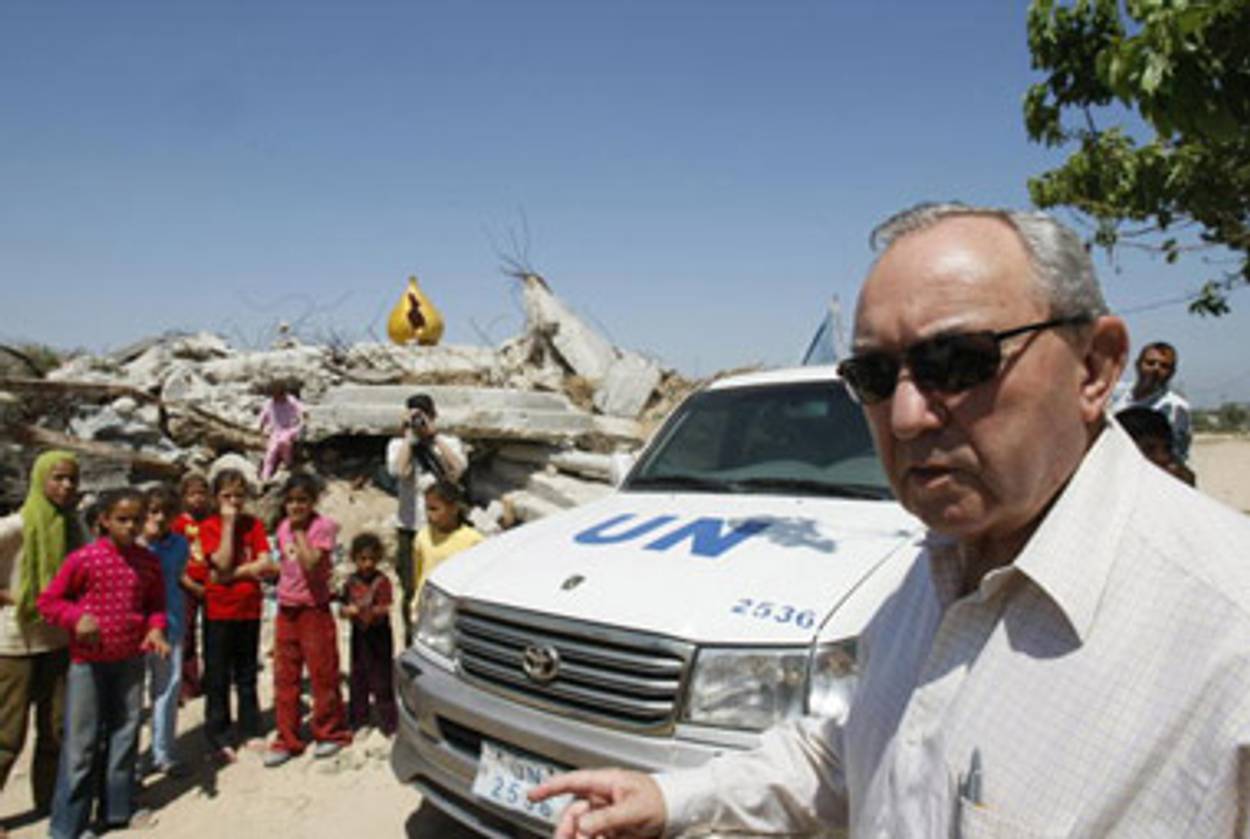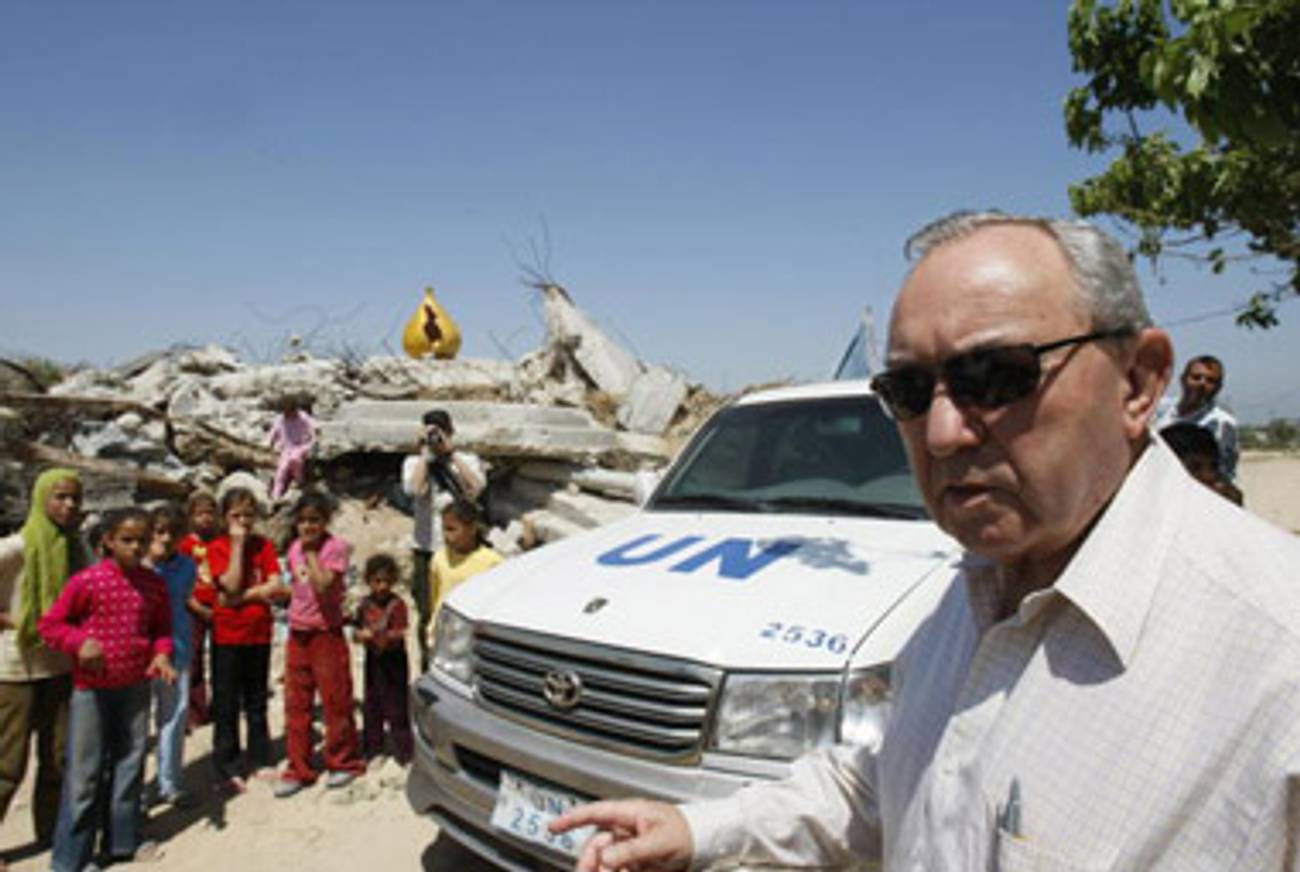Why Is Israel So Upset by Goldstone Report?
Because it’s a loss in the ‘Legitimacy War,’ Princeton prof argues




Why is Israel reacting with such fervent anger to the Goldstone report? The 575-page paper compiled by South African Jewish jurist and U.N. prosecutor Richard Goldstone, which alleges that Israel committed war crimes in the Gaza War, doesn’t contain much that NGOs like Human Rights Watch hadn’t already reported—and that Israel hadn’t already objected to—argues Richard Falk, a retired Princeton professor and a U.N. monitor in Gaza, in an article being forwarded around the lefty blogosphere. (The article has no clear source, but there’s no indication that it wasn’t written by Falk.) The Goldstone report “added little to what was previously known,” Falk writes. “Arguably, it was more sensitive to Israel’s contentions that Hamas was guilty of war crimes by firing rockets into its territory than earlier reports had been. And in many ways the Goldstone Report endorses the misleading main line of the Israeli narrative by assuming that Israel was acting in self-defense against a terrorist adversary.”
But several things particularly spooked Israel (and the United States) about the report, Falk writes. First, Goldstone is “an eminent international personality who cannot credibly be accused of anti-Israel bias, making it harder to deflect attention from the findings no matter how loud the screaming of ‘foul play.’” Plus, “the unsurprising findings are coupled with strong recommendations” for the Security Council to send Israel (and Hamas) to the International Criminal Court in the Hague if they don’t conduct adequate internal investigations—and could also put Israeli officials at risk for being detained for prosecution or extradition when traveling abroad. What all this leads to, Falk concludes, is a loss for Israel in the “Legitimacy War.” He explains: “Such a war fought on a global political battlefield is what eventually and unexpectedly undermined the apartheid regime in South Africa, and has become much more threatening to the Israeli sense of security than has armed Palestinian resistance.”
Why the Goldstone Report Matters [Mondoweiss]
Ari M. Brostoff is Culture Editor at Jewish Currents.